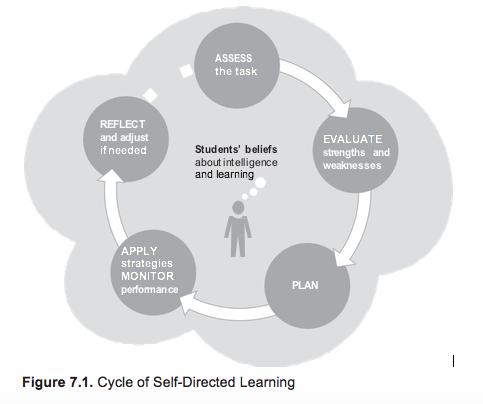This post is contributed by Peter Arthur, Chapter Seven Facilitator.
WHAT?
Key Principle: “To become self-directed learners, students must learn to assess the demands of the task, evaluate their own knowledge and skills, plan their approach, monitor their progress, and adjust their strategies as needed.”
Further, upon completing the learning task, students should reflect on their learning process, examine instructor feedback and adjust their learning strategy for next time.
Figure 7.1. Cycle of Self-Directed Learning

Note: One of the book’s authors (Marsha Lovett) explains principle 7 at the University of Texas at Austin: https://vimeo.com/185485728
So What?
Metacognition enhances a student’s ability to be a self-directed learner and is associated with academic success. However, according to chapter 7, students do not fully leverage their metacognitive skills. Consequently, it is important to support students with developing and applying their metacognitive abilities.
Now What?
Strategies that support student’s ability to develop and apply the following metacognitive skills:
- Access the demands of the task
- Be explicit with communicating your learning targets/competencies/outcomes related to what you expect and don’t want in a learning task. Further, it is important to check the student’s understanding of the task’s expectations.
- Provide students with the criteria they will be assessed on i.e. rubric.
- Evaluate ones own strengths and stretches (weaknesses)
- Provide practice with timely feedback.
- Provide opportunities for self-assessment. For example students may use practice exams to assist with learning the material, however just as importantly learn about their strengths and weaknesses.
- Plan an approach
- Either provide students with a detailed plan that includes milestones/deadlines or have them create their own learning plan.
- Applying strategies and monitoring performance
- Require students to reflect on and annotate their own work.
- Reflecting on and adjusting one’s approach
- Require students to reflect on their performances i.e. assignments/projects and exams. In the case of exams, exam wrappers ask students how they performed, what strategies they used to prepare, based on exam results what worked and didn’t work, and most importantly, what they should do next time to learn the material for the exam.
- Beliefs about intelligence and learning (Growth Mindset)
- Directly teach that students are able to grow their intelligence and the more effort put in, the more you will get out.
- Support students with setting reasonable expectations with their learning.
- Develop their metacognition
- Model your thinking. For example, using the think aloud protocol, demonstrate how an expert would solve the problem by speaking your thoughts each step of the way
In summary, metacognition does not necessarily develop on its own. Metacognitive skills enhance the student’s ability to be a self-directed learner and succeed in higher education environments that are placing more responsibility for their learning on the student. This chapter provides many practical ideas. Please share your thoughts and comments!
To encourage participation, those who share a comment/post this week will have their name entered into the Chapter Seven draw for a $25 CAD gift certificate for Chapters Indigo. Read the contest guidelines here. Good luck!
The Book Club chat on Chapter Seven will take place on Friday, Nov. 9th at 10 AM DST. Check out the schedule and how to connect with the group.


